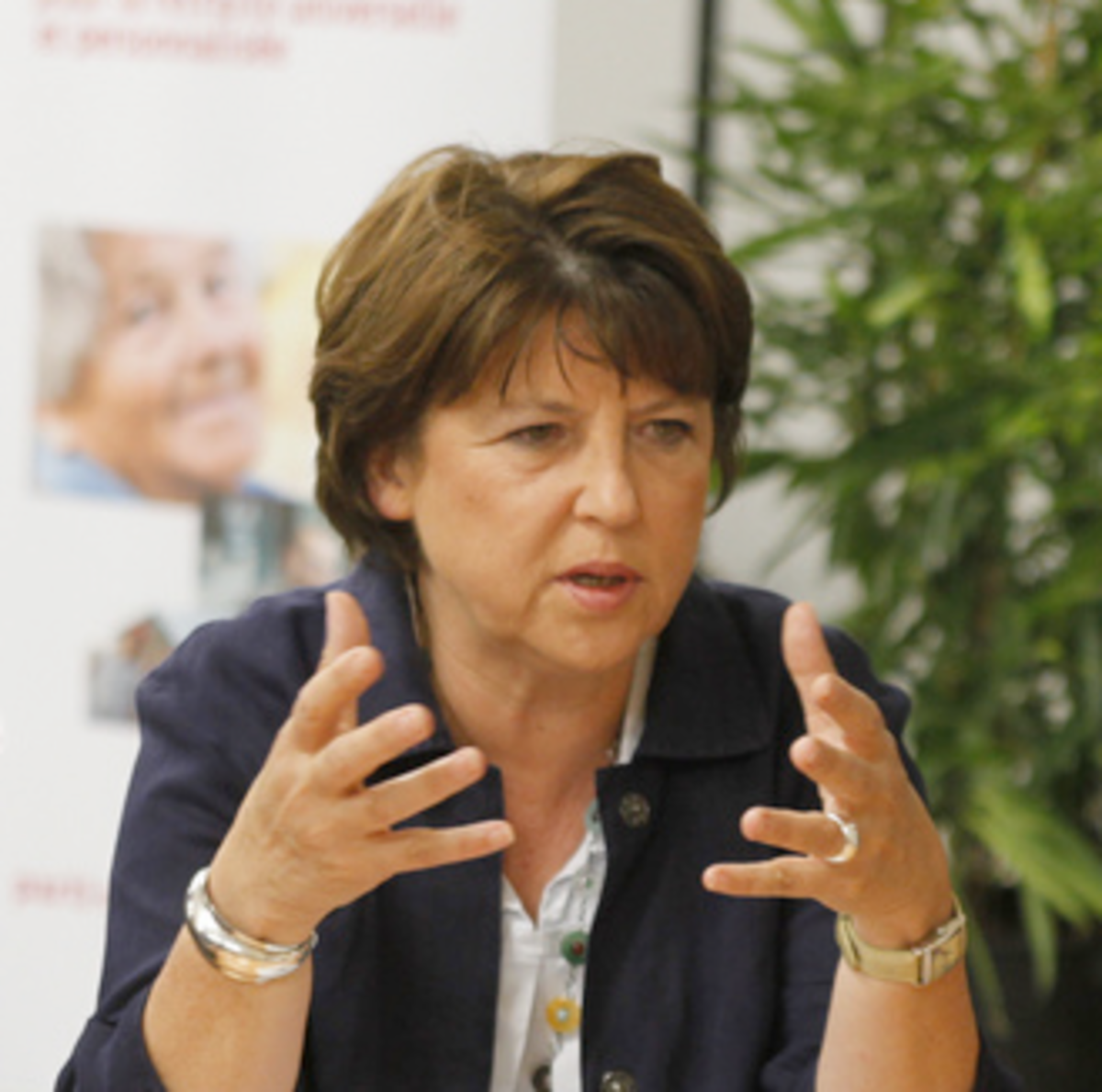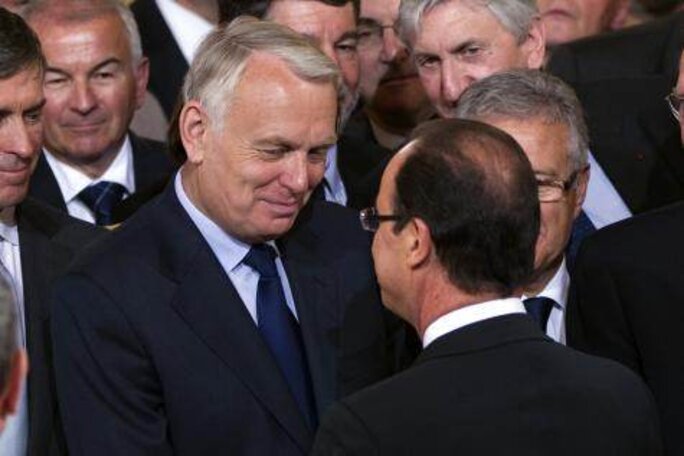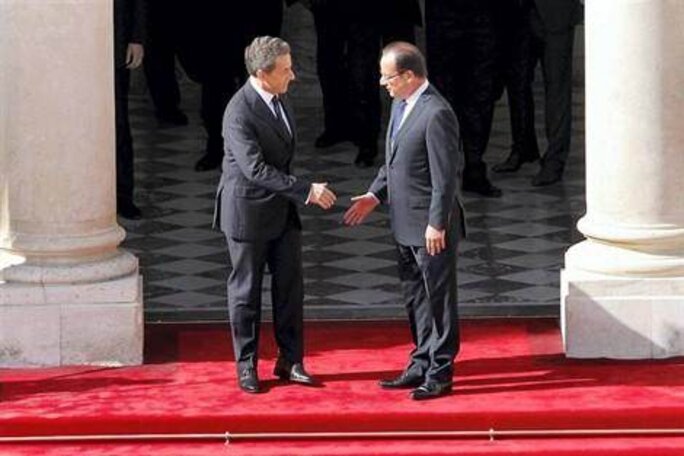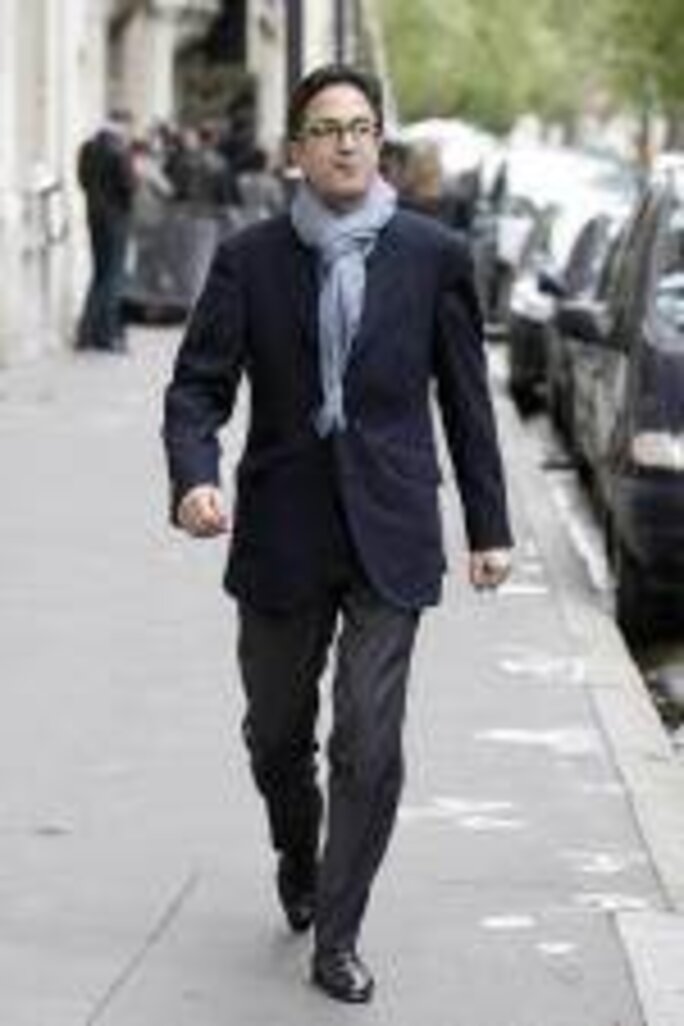By Graham Tearse
France’s new socialist government was unveiled Wednesday evening, after an afternoon of prolonged talks between newly-elected President François Hollande and Prime Minister Jean-Marc Ayrault.
The list of 34 ministers – including 17 junior ministers – met Hollande’s promise to form a government with gender parity, and includes the creation of new ministries that announced a new approach to the task ahead in tackling the economic crisis, like that of industrial 'Productive Recovery'. The ministers, who meet for their first cabinet meeting on Thursday afternoon, will now form a provisional government ahead of parliamentary elections in June.
Speaking on French television Wednesday evening, Ayrault announced that his first move at Thursday's cabinet meeting will be to ask agreement that all ministers accept, along with himself as prime minister, a -30% cut in their salaries.
While there was little surprise that the post of foreign affairs minister went to Socialist Party veteran, and former French Prime Minister, Laurent Fabius, 65, few predicted the appointment of France’s first black justice minister, Christiane Taubira, 60, an MP from French Guiana.
Manuel Valls, 49, who was Hollande’s presidential election campaign media relations director and who is a prominent Socialist Party figure, was appointed interior minister. Valls, a naturalized French citizen of Spanish origin, sits on the Right of the party’s mainstream.
Pierre Moscovici, 54, Hollande’s election campaign manager and a former junior minister for European affairs under the last socialist government, was given the post of economy and finance minister.
The Green party’s outgoing leader, Cécile Duflot, was appointed Minister of Territorial Equality and Housing.
The new government includes some names unfamiliar to the wider French public, such as Jean-Yves Le Drian, 64, head of the Brittany regional council, who was appointed as defence minister (for a full list of the new government, see page three of this article).
The announcement of the composition of the new French government was delayed during the day after talks between newly-elected President François Hollande and Prime Minister, Jean-Marc Ayrault, appointed on Tuesday, went beyond a planned deadline.
The two men met late Wednesday morning to put the final touches to the new government list, but a planned 4 p.m. announcement was postponed, without explanation, until the evening.
Ayrault, 62, formally took up his post after a handing-over ceremony with the outgoing François Fillon held earlier in the morning at the Hôtel Matignon, the prime minister’s office.
But the first surprise of the day was the omission from government of Socialist Party leader Martine Aubry, who was previously tipped as a potential candidate for prime minister. “That’s no good for Hollande,” an unnamed source, described as close to the new French president, was cited by France Info radio station as saying, suggesting that her lack of a ministerial role for Aubry could re-ignite the party’s damaging recent years of internal squabbling. “We’re heading back to the socialist’s old fare," the source added.
However, the final composition of the government announced Wednesday evening, shortly after 7.30 p.m., includes a number of Aubry's party faithful.

Aubry, 61, was beaten last year by Hollande in the party’s primaries for the nomination of a presidential candidate last autumn, and during the debates she had sharply criticized his policy propositions, described him as representing “the soft Left”.
However, after Hollande’s appointment as candidate, Aubry, who had positioned herself a degree to the Left of Hollande, rallied behind him in a public display of absolute loyalty. Because of Aubry’s popularity among a large section of Socialist Party members, her success in re-launching the party after its battering in the 2007 presidential and legislative elections, and her previous high-level experience in government, she was perceived by many observers as a strong rival of Hollande’s longstanding political ally Ayrault for the post of prime minister.
The news that she was not included in the new government was first reported on the website of French daily Le Monde, citing sources close to Ayrault. This was later confirmed by Aubry herself.
“We discussed this on Monday with François Hollande,” she told Le Monde. “He told me he had made the choice of Jean-Marc Ayrault. We agreed that, in this situation, my presence in government would have no sense.”

“I have been the number two of government,” she continued, referring to her post as employment minister under the 1997-2002 government of socialist Prime Minister Lionel Jospin, when she was the architect of the controversial law establishing a 35-hour working week. “François Hollande has made a political choice by not nominating me to [the prime minister’s office] Matignon. I wasn’t going to enter into I don’t know what negotiation over a ministry of I don’t know what,” she added.
“I had always thought that François Hollande would choose Jean-Marc Ayrault, because I knew that he would want someone very close to him,” Aubry told Le Monde. “At heart, I never had a doubt about the choice he would make. I said so to those close to me as of the second round of the primaries.”
On Tuesday, immediately after he was sworn in, François Hollande announced the first appointments to his presidential staff.

A key non-governmental post is that of Secretary-General of the Elysée Palace, the French presidential office. This is the president’s chief-of-staff, a powerful role that was occupied during the first four years of Nicolas Sarkozy’s presidency by Claude Guéant, who was later appointed interior minister.
Hollande’s chief-of-staff, announced Tuesday, is Pierre-René Lemas, 61, a longstanding ally of the new president who insiders describe as carrying a reputation for professional and political integrity – a watchword for the new administration. Both men were in the same graduation year at the Ecole National d’Administration (ENA), the elite French higher education school from which most of the country’s ranking civil servants and politicians have emerged. A career civil servant, Lemas, a former ‘director-general of the administration’ - tantamount to being the country’s head prefect - was demoted by Sarkozy in 2007, before joining the socialist-run Paris city hall’s housing department.
One of Hollande’s first appointments to his team of senior foreign affairs advisors was Paul Jean-Ortiz, 55, who accompanied the new president on his inaugural trip abroad to meet German Chancellor Angela Merkel in Berlin on Tuesday. A former diplomat serving in China and Vietnam, specialist in Chinese affairs and a fluent mandarin speaker, he spent four years with the French embassy in Spain before becoming head of the French foreign ministry’s China and Pacific Ocean desk in 2009.

Hollande’s press spokesman is Christian Gravel, 38, who was previously chief-of-staff and head of communications for the city hall of Evry, south of Paris, under local mayor and MP Manuel Vals, a leading figure of the Socialist Party who became head of press relations for Hollande’s election campaign. Gravel, a martial arts enthusiast, seconded Vals during the campaign, impressing Hollande to the point that new president described him as “the man who says nothing but does a lot, when others speak a lot but do nothing”.

Aquilino Morelle, 49, who was Hollande’s campaign speech writer, was appointed political advisor to the president. Morelle, who was born to a family of Spanish immigrants, who trained as a doctor before being admitted to the ENA, is a long-serving member of the Socialist Party, a speechwriter for former Prime Minister Lionel Jospin and an unsuccessful candidate in past local and legislative elections. He was offered a place as a parliamentary constituency candidate for the Socialist Party in the upcoming June elections, which he refused in favour of his new post beside Hollande.
The full list of the new French government announced on May 16th, 2012.
Jean-Marc Ayrault, Prime Minister.
Manuel Valls, Minister of the Interior.
Christiane Taubira, Minister of Justice.
Pierre Moscovici, Minister of the Economy, Finance and Foreign Trade.
Laurent Fabius, Minister of Foreign Affairs.
Jean-Yves Le Drian, Minister of Defence.
Vincent Peillon, Minister of Education.
Marisol Touraine, Minister of Health and Social Affairs.
Nicole Bricq, Minister of Ecology, Sustainable Development and Energy.
Arnaud Montebourg, Minister of Productive Recovery.
Aurélie Filippetti, Minister of Culture and Communications.
Geneviève Fioraso, Minister of Higher Education and Research.
Najat Vallaud-Belkacem, Minister of Women’s Rights, Government spokeswoman.
Stéphane Le Foll, Minister of Agriculture and Agroalimentary Industry.
Cécile Duflot, Minister of Territorial Equality and Housing.
Marylise Lebranchu, Minister of State Reform, Decentralisation and the Civil Service.
Victorin Lurel, Minister of French Overseas Territories.
Valérie Fourneyron, Minister of Sport, the Young, Popular Education and Associative Activity.
Junior Ministers:
Alain Vidalies, Secretary of State for Relations with Parliament for the Prime Minister.
Jérôme Cahuzac, Secretary of State for the Budget, under the Ministry of the Economy, Finance and Foreign Trade.
Benoît Hamon, Secretary of State for Social and Socially-Cohesive Economic Activities, under the Ministry of the Economy, Finance and Foreign Trade.
George Pau-Langevin, Secretary of State for Educational Success, under the Ministry of Education.
Delphine Batho, Secretary of State, under the Ministry of Justice.
François Lamy, Secretary of State for Urban Affairs, under the Ministry of Territorial Equality and Housing.
Bernard Cazeneuve, Secretary of State for European Affairs, under the Ministry of Foreign Affairs.
Yamina Benguigui, Secretary of State for Francophone Culture and French Citizens Abroad, under the Ministry of Foreign Affairs.
Pascal Canfin, Secretary of State for Development Aide, under the Ministry of Foreign Affairs.
Michèle Delaunay, Secretary of State for Elderly People and the Dependant, under the Ministry of Health and Social Affairs.
Dominique Bertinotti, Secretary of State for Family Affairs, under the Ministry of Health and Social Affairs.
Marie-Arlette Carlotti, Secretary of State for the Handicapped, under the Ministry of Health and Social Affairs
Sylvia Pinel, Secretary of State for Trade, Small Professional Businesses and Tourism under the Ministry of Productive Recovery.
Fleur Pellerin, Secretary of State for Small- and Medium-sized Businesses, innovation and the Digital Economy, under the Ministry of Productive Recovery.
Frédéric Cuvillier, Secretary of State for Transport and the Maritime Economy, under the Ministry of Ecology, Sustainable Development and Energy.
Kader Arif, Secretary of State for War Veterans, under the Ministry of Defence.
-------------------------


